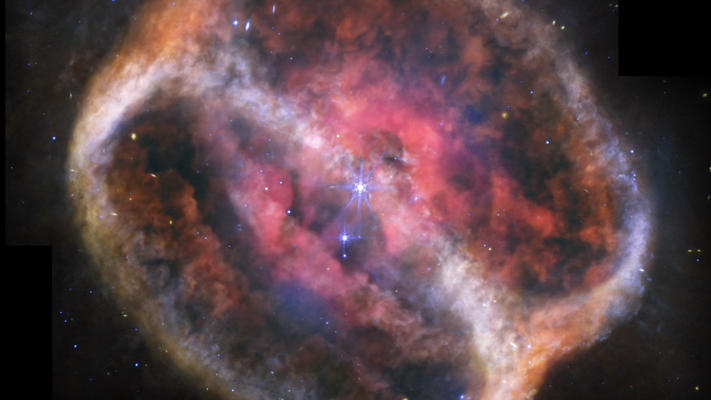NASA astronaut Don Pettit and 2 cosmonauts will return to Earth on April 19
The trio will touch down in Kazakhstan on Saturday night (April 19).

NASA astronaut Don Pettit and two cosmonaut colleagues will return to Earth from the International Space Station (ISS) on Saturday night (April 19), if all goes to plan.
The journey home for Pettit, Alexey Ovchinin and Ivan Vagner will begin Saturday at 5:57 p.m. EDT (2157 GMT), when their Russian Soyuz spacecraft undocks from the ISS' Rassvet module.
The trio will touch down on the steppe of Kazakhstan, southeast of the town of Dzhezkazgan, just a few hours later, around 9:20 p.m. EDT (0120 GMT and 6:20 a.m. local Kazakh time on April 20). NASA will webcast the homecoming live, and Space.com will carry the agency's feed if it's made available.
Landing day will be doubly special for Pettit: It's his 70th birthday (in Kazakhstan, anyway; Pettit was born on April 20). He's the oldest active member of NASA's astronaut corps.
The Soyuz carrying Pettit, Ovchinin and Vagner launched on Sept. 11, 2024 and docked at the ISS on the same day. By the time they depart on Saturday, the trio will have spent 220 days in space and orbited Earth 3,520 times, traveling over 93 million miles (150 million kilometers), according to NASA.
After this current stint is over, Pettit will have spent a total of 590 days in orbit over the course of four space missions.
NASA's coverage of the Soyuz's return to Earth will commence at 2:40 p.m. EDT (2040 GMT) on Friday (April 18), to show Ovchinin handing over command of the ISS to JAXA (Japan Aerospace Exploration Agency) astronaut Takuya Onishi.
Get the Space.com Newsletter
Breaking space news, the latest updates on rocket launches, skywatching events and more!
Then, on Saturday, coverage will kick off at 2.00 p.m. EDT (1800 GMT) with a farewell ceremony for the departing trio. The live stream will pick up to cover undocking and landing.
Join our Space Forums to keep talking space on the latest missions, night sky and more! And if you have a news tip, correction or comment, let us know at: community@space.com.

Robert Lea is a science journalist in the U.K. whose articles have been published in Physics World, New Scientist, Astronomy Magazine, All About Space, Newsweek and ZME Science. He also writes about science communication for Elsevier and the European Journal of Physics. Rob holds a bachelor of science degree in physics and astronomy from the U.K.’s Open University. Follow him on Twitter @sciencef1rst.
You must confirm your public display name before commenting
Please logout and then login again, you will then be prompted to enter your display name.









